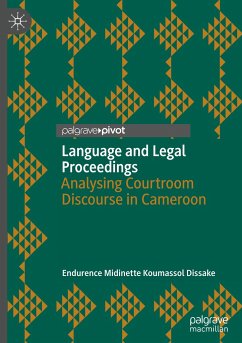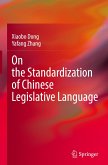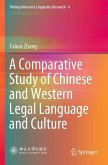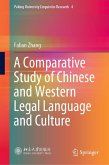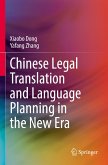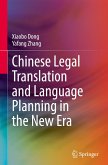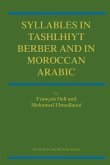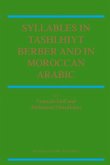This book investigates language-related problems which arise in courtroom discourse in the Republic of Cameroon, in Central Africa. While Cameroon has over 250 national languages, court cases are conducted in the two official languages: English and French. This is despite the fact that 40% of the adult population is illiterate in these languages, and means that lay litigants often encounter language-related problems during trials. In this study, the author makes use of Speech Act Theory and Interactional Sociolinguistics to analyse the speech acts of both legal professionals and lay litigants as observed in 37 legal cases, demonstrating how the use of exoglossic languages in a highly multilingual nation constitutes a serious issue. The book will be of interest to students and scholars of Forensic Linguistics, Language Policy and Planning, and Discourse Analysis, particularly those with an interest in the African context.
"The recommendation is that the indigenous national languages be introduced in the Cameroon legal system and profession. The book provides an important introduction to language in Cameroon courts and the legal profession. It is a welcomed introductory work for Cameroon and the African continent in the discipline of forensic linguistics that can be built upon to produce further in-depth research into the language situation in Cameroon high courts and in relation to analysing language rights implementation and violations." (Zakeera Docrat, International Journal for the Semiotics of Law, Vol. 37 (2), 2024)
"The book, which consists of six chapters, is based on qualitative research methods. ... Any legal linguist who sets out to research the linguistic asymmetries between legal and lay participants in courtroom interaction in a multilingual African environment has to use this book as their starting point." (Par Deginet Wotango Doyiso, Linguistique et Langues Africaines, Vol. 8 (1), 2022)
"The book, which consists of six chapters, is based on qualitative research methods. ... Any legal linguist who sets out to research the linguistic asymmetries between legal and lay participants in courtroom interaction in a multilingual African environment has to use this book as their starting point." (Par Deginet Wotango Doyiso, Linguistique et Langues Africaines, Vol. 8 (1), 2022)

